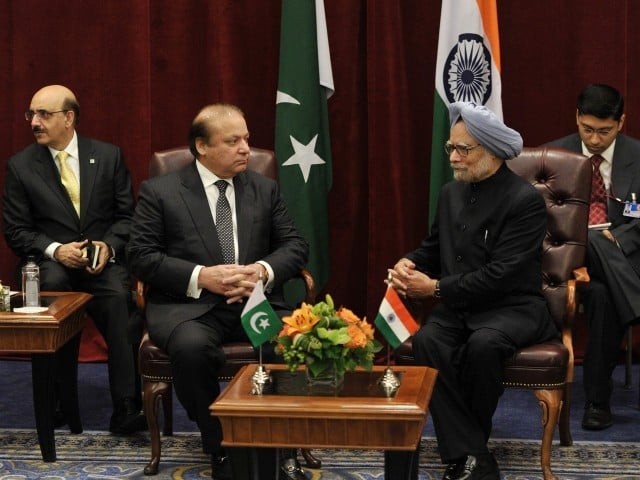Border solutions
Discussions have been held, but the actual conduct of a meeting is being held back by the approach adopted by India.

Mr Singh and Mr Sharif had agreed at their meeting in New York last month that the Directors General Military Operations of both countries would meet face to face to discuss the situation. PHOTO: FILE
Something tangible clearly needs to be done and in this context, the meeting between Punjab Rangers officials and their counterparts from the Indian Border Security Force on the working boundary at Sialkot is excellent news. This sector has, in recent weeks, seen some of the most heated exchanges, leading to claims of death, injury and mass panic on either side. The agreement then to work towards normalising things along this frontier is therefore welcome. We can only wish these talks had taken place sooner; we must also hope the agreements reached during them will now be adhered to.
It is also necessary to move on from here and do everything possible to end border frictions. Mr Singh and Mr Sharif had agreed at their meeting in New York last month that the Directors General Military Operations of both countries would meet face to face to discuss the situation. A provision for contact between these officers is included in previous agreements. It is understood that discussions have been held, but the actual conduct of a meeting is being held back by the approach adopted by the Indian side, which is opposing any participation by foreign ministry officials in the sessions. This lack of flexibility is disappointing; we are told it is driven by the fact the Indian officials carrying out talks have been told that the Pakistan military does not want peace. It is vital that such pettiness be overcome and talks held at the DGMO level so that border calm can be restored as quickly as possible.
Published in The Express Tribune, October 31st, 2013.
Like Opinion & Editorial on Facebook, follow @ETOpEd on Twitter to receive all updates on all our daily pieces.















COMMENTS
Comments are moderated and generally will be posted if they are on-topic and not abusive.
For more information, please see our Comments FAQ